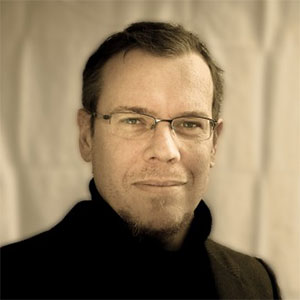
Then the righteous will answer him, “Lord, when did we see you hungry and feed you, or thirsty and give you something to drink? When did we see you a stranger and invite you in, or needing clothes and clothe you? When did we see you sick or in prison and go to visit you?”
The King will reply, “Truly I tell you, whatever you did for one of the least of these brothers and sisters of mine, you did for me.” —Matthew 25:37-40 (NIV)
Right belief and right practice: you might call them the two oars in the rowboat of a healthy Christian disciple. But if you had to choose to prioritize one of those two oars, which one would it be?
Growing up as an evangelical, the answer was simple. Belief is the starting point of salvation, in particular the beliefs that Jesus is Lord and God raised him from the dead (Romans 10:9). Salvation may require more than this in terms of belief and action, but it surely could not require less.
That idea worked for me for several years. But the more I examined that simple position, the more cracks appeared. In this article I want to consider one of them. In order to see it I want to propose a simple thought experiment, one that is based on two real life cases, one of a Christian who believed the right doctrines but acted wrongly, and the other of a Muslim who (according to Christian doctrine) believed the wrong doctrines but acted rightly.
The setting is the 1994 Rwandan genocide. Commentators have noted that this horrifying event is likely the most efficient genocide in the twentieth century. Over a three month period more than 800,000 Tutsis and moderate Hutus were butchered by roving militias brandishing primitive farm implements like scythes and knives. And all the while the international community stood by as they carefully formulated reasons not to intervene. The demonically bureaucratic calculus of geopolitics that drove Western complacency was soberly summarized by one US official who brazenly declared that “one American casualty is worth about 85,000 Rwandan dead” (cited in Samantha Powers, A Problem from Hell: America and the Age of Genocide (New York: Harper Perennial, 2003), 381).
As terrible as this is, statistics do little to convey the horror of genocide on the ground. In one case, the executive assistant of Romeo Dallaire (commander of UN forces) arrived too late to help those hiding in a church run by Polish missionaries: “When we arrived, I looked at the school across the street, and there were children, I don’t know how many, forty, sixty, eighty children stacked up outside who had all been chopped up with machetes” (Powers, 349). As unimaginable as that single incident is, it represents less than 100 lives lost against the blood soaked backdrop of more than 800,000.
This brings us to our two individuals who lived through this genocide. We begin with Pastor Elizaphan Ntakirutimana, a leader in the Seventh Day Adventist Church with impeccable theological and pastoral credentials. In the middle of the genocide, several Tutsi Adventist pastors wrote Ntakirutimana a letter appealing for help that opened with the haunting line: “We wish to inform you that tomorrow we will be killed with our families.” (See Philip Gourevitch, We Wish to Inform You that Tomorrow We Will Be Killed with Our Families (New York: Farrar, Straus and Giroux, 1998).) Not only did Ntakirutimana disregard their desperate plea for help, he went a terrible step further by directing Hutu militias straight to their hiding place, an act that resulted in a grisly slaughter. So in the cruelest of ironies, the very Christian these saints appealed to for salvation instead became their chief executioner.
At the same time that a number of church leaders like Ntakirutimana either stood by or actively joined the genocide, a few brave souls struggled to save what lives they could. One of those was Mbaye Diagne, a captain from the Senegalese army … and a devout Muslim. Working for UN forces, Diagne repeatedly flouted the orders of his commanding officer to remain within the compound. Instead he ventured out time and again to pick up Tutsis in his Jeep–about five at a time–in order to transfer them to the relative safety of the compound. He accomplished this feat by bravely bargaining his way across dozens of Hutu checkpoints, using little more than cigarettes and his good humor. Day after day, Diagne worked tirelessly for several weeks, repeatedly putting his life at risk until he was finally killed on May 31 from flying shrapnel.
That’s the set up. Now we can turn to the thought experiment. Imagine that you are about to stand before the throne of God to be judged, and you must choose between the life and legacy of Elizaphan Ntakirutimana, a theologically orthodox participant in genocide, or Mbaye Diagne, a Muslim who lost his life selflessly protecting the innocent in that very genocide.
Which would you choose?
For further discussion see my book You’re not as Crazy as I Think: Dialogue in a World of Loud Voices and Hardened Opinions (Biblica, 2011), chapter 7 “Not all Liberal Christians are heretics.”
 About Randal Rauser
About Randal Rauser
Randal Rauser is Professor of Historical Theology at Taylor Seminary in Edmonton, Alberta. He is the author of many books, including Is the Atheist My Neighbor?: Rethinking Christian Attitudes toward Atheism (2015), The Swedish Atheist, the Scuba Diver, and Other Apologetic Rabbit Trails (2012), and You’re Not as Crazy as I Think: Dialogue in a World of Loud Voices and Hardened Opinions (2011). Rauser blogs and podcasts as The Tentative Apologist at randalrauser.com.
Leave a Reply